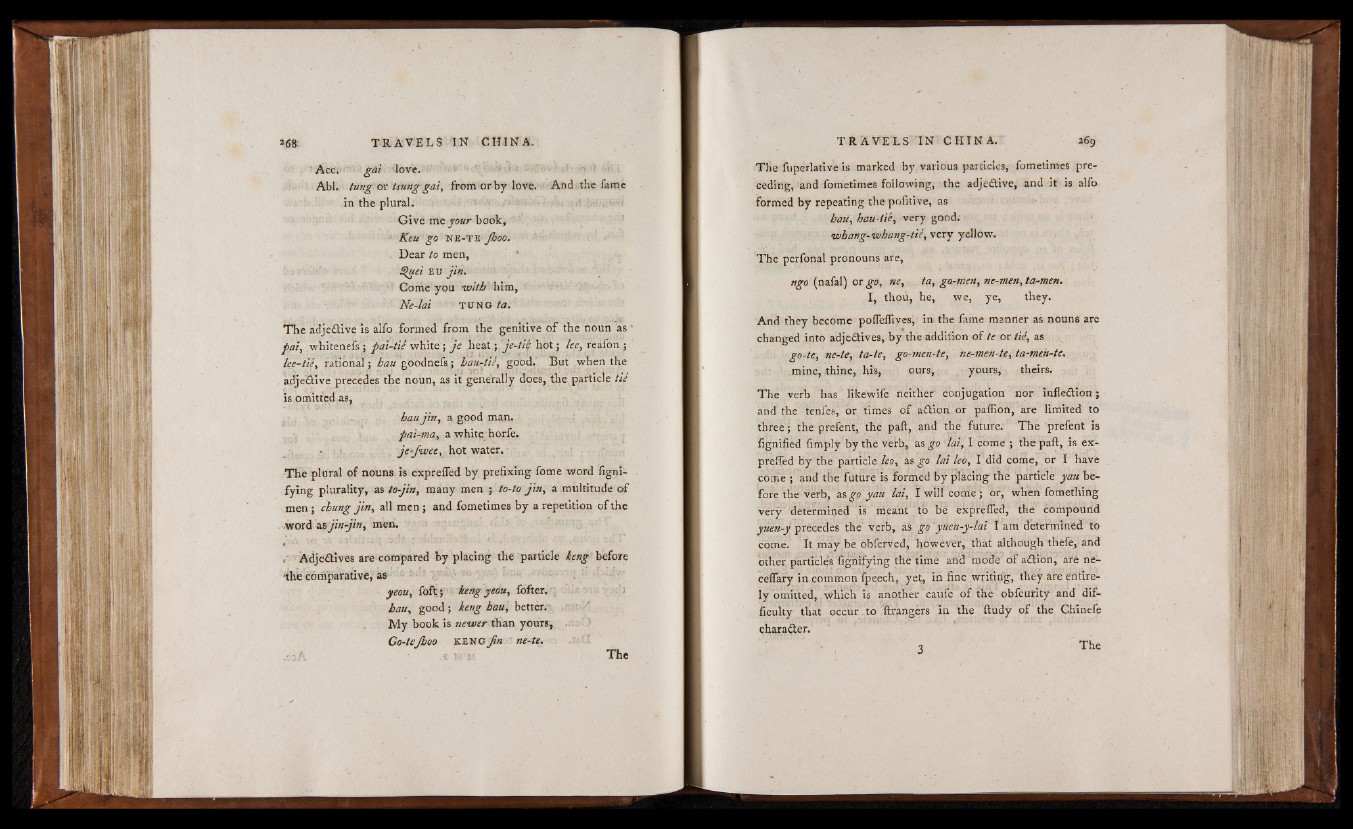
Acc. gai love.
Abl. tung or tsung ga i, from or by love. And the fame
in the plural.
G iv e me your book,
’ Keu go N E -T E Jhoo.
. Dear to men,
S>uei EU jin .
Come you with him, |
Ne-lai TU N G ta.
T he adjeCtive is alfo formed from the genitive o f the noun a s»
p a i, whitenefs ; pai-tie white ; j e heat.; je -ti? h o t ; lee, reafon ;
lee-tie, rational j hau goodnefs; hau-tie, good. But when the
adjeitive precedes the noun, as it generally does, the particle tie
is omitted as,
hau jin , a good man.
pai-ma, a white horfe.
je-fw e e , hot water.
T h e plural o f nouns is expreffed by prefixing fome word figni-
fying plurality, as to-jin, many men ; to-to jin , a multitude o f
men; chung jin , all men; and fometimes by a repetition o f the
word as jin -jin , men.
< Adjectives are compared by placing the particle keng before
'the coiiiparative, as
yeou, fo ft; keng yeou, fofter. ;
hau, good ; keng hau, better.' .
M y book is newer \hxn. yours, . 0
Go-tejhoo k e n g Jin ne-te.
The
T he fuperlative is marked by various particles, fometimes preceding,
and fometimes following, the adjeCtive, and it is alfo
formed by repeating the pofitive, as
hau, hau-tie, very good;
whang-'whang-tie, very yellow.
The perfonal pronouns are,
ngo (nafal) or go, ne, ta, go-men, ne-men, ta-men.
I, thou, he, we, ye, they.
And they become poifeflives, in the fame manner as nouns are
changed into adjeftives, by the addition o f te or tit, as
go-te, ne-te, ta-te, go-men-te, ne-men-te, ta-men-te.
.mine, thine, his, ours,. yours, theirs.
The verb has likewife neither conjugation nor inflection;
and the tenfes, or times o f aCtion or paffion, are limited to
three; the prefent, the paft, and the future. T he prefent is
fignified fimply by the verb, as go lai, I come ; the paft, is ex-
prefled by the particle leo, as go lai leo, I did come, or I have
come ; and the future is formed by placing the particle yau before
the verb, as go you lai, I will come ; or, when fometliing
very determined is meant to be expreffed, the compound
yuen-y precedes the verb, as go yuen-y-lai I am determined to
come. It may.be obferved, however, that although thefe, and
other particle's "fignifying the'time and mode o f aition, are ne-
ceflary in. common fpeech, yet, in fine writing, they are entirely
omitted, which is another'caufe o f the obfeurity and difficulty
that occur to ftrangers in the ftudy o f the Chinefe
character.
3